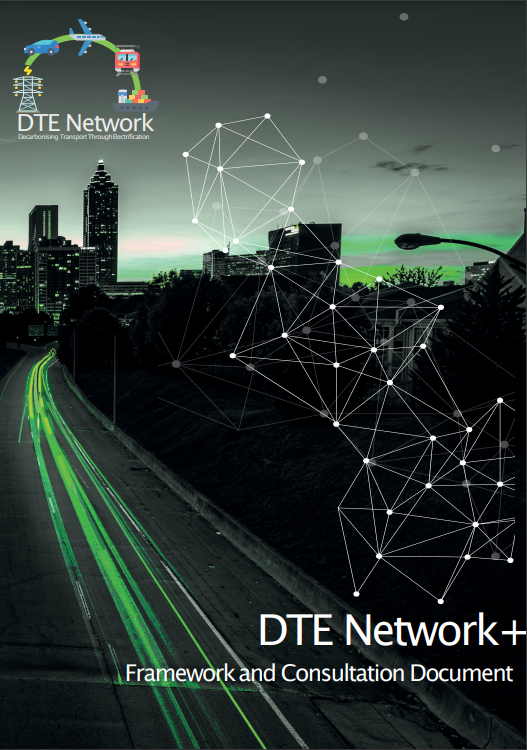Website: dte.network
The Decarbonising Transport through Electrification Network+ is addressing low-carbon transport modes (road, rail and airborne) alongside associated electricity infrastructures to support existing and deliver future mobility needs, treating these as an integrated system embedded within the electricity energy vector with the goal of decarbonising the transport sector.
It explores drivers for change within the transport system including technology innovation, individual mobility needs and economic requirements for change alongside environmental and social concerns for sustainability and consider the role, social acceptance and impact of policies and regulations to result in emissions reduction.
The DTE Network+ is led by Cardiff, Cranfield, Birmingham, Bristol and Southampton Universities combining research expertise on (i) electric vehicle charging infrastructure, (ii) the shift to autonomous vehicles, electric and hybrid aircraft, (iii) decarbonisation of the rail network and (iv) interactions between energy and transport networks.
The DTE Network+ brings together expertise from across industry, academia and the public sector to address advanced research questions, but not limited to:
- Vehicles and associated technologies including electric powertrains, connected autonomous vehicles and green taxiing.
- Charging Infrastructure including extending charging infrastructure, dynamic charging on the road, railway feeder stations and integration of low carbon generation on the railway electrification network.
- Smart mobility exploring human factors related topics such as user needs and expectations, attitudes and behaviours associated with mobility as a service and shared ownership of electric powered connected autonomous vehicles.
- Supply of electricity as a transport fuel including challenges related to:
- investigating the carbon footprint reduction of low-carbon transport modes by considering synergies and interaction with renewable energy sources, local energy generation, storage and management systems
- geographical distribution of the demand as a result of low-carbon transport modes
- improve synergies between power grids and rail electrification lines with power electronics technologies
- charging infrastructure deployment in combination with grid edge technologies and integration with smart grids
- EVs to be used as a source of flexibility, vehicle-to-everything (V2x)
- cybersecurity for connected and automated vehicles, enhancing cybersecurity in the transport system


